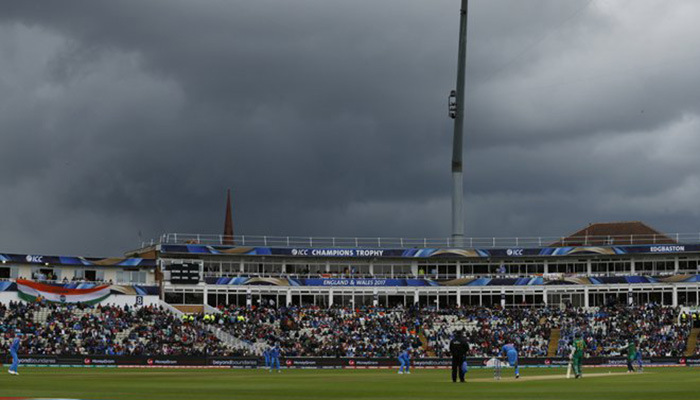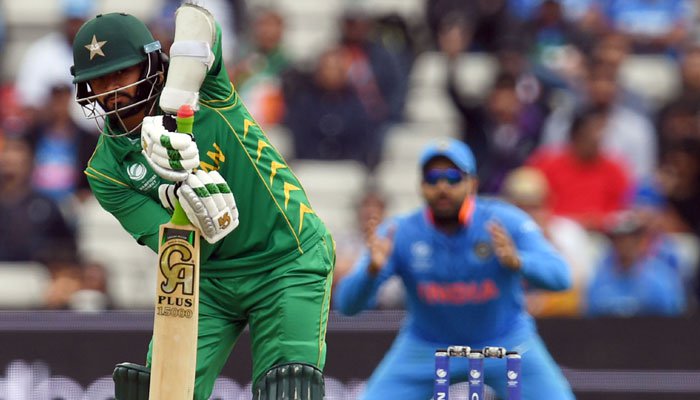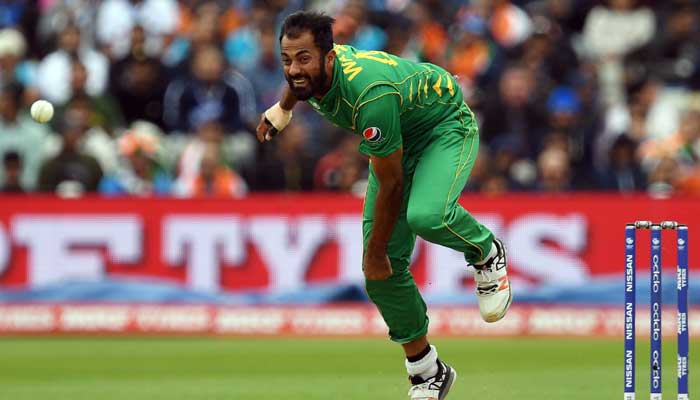June 06, 2017

It’s more than a game, whenever India and Pakistan are engaged in a one-day fixture. Be it 1978, when the two countries played for the first time together; or 2013, when Pakistan returned victorious from India under the leadership of Misbah-ul-Haq. But the recent show in Birmingham by Pakistan presents a gloomy picture for the future if things don’t get changed.
People who grew up in the 80s and 90s have mostly seen Pakistan giving India ‘a tough time’ in ODIs. Except for losses in the World Cup matches, India rarely had a chance. The men-in-green mostly played ‘mind games’ with the arch-rivals. Be it Sarfaraz Nawaz hurling bouncers at the tail-enders at Sahiwal, Mohinder Amarnath being knocked down by Imran Khan in Lahore or Javed Miandad ‘frog jumping’ in front of wicket-keeper Kiran More in Sydney years later.

Loads of experience in limited overs due to county commitments helped well-built bowlers from Pakistan to seam the ball well, stylish batsmen to plunder the best of attacks and a shrewd captain to exploit the opponents. India were, back then, playing the game from another century, they rarely had a responsible bowler to shoulder Kapil Dev, their only quickie for years, and their batsmen, afraid of short-pitched deliveries preferred to surrender rather than attack.
Just like in the game of football, it seems the sides have changed after half-time. Since 2013, Pakistan have been faring badly against India in cricket. When they met at Birmingham, four years ago, Pakistan were unable to play the full quota of overs and despite rain, India managed to win comfortably by 8 wickets. Same ground, same opposition, same tournament gave a similar result four years later. Pakistan lost, but everyone knew they were bound to.
The recent defeat not only exposed Pakistan’s approach and their inability to cope up with modern cricket. Right from the moment Sarfraz Ahmed blundered at the toss, the match was never theirs. It seemed Pakistan got a taste of its own medicine as India now have a powerful bowling attack, aggressive batsmen and a shrewd captain to take them places. Pakistan looked like playing the game from another century.
Sarfraz was the biggest disappointment of the match. Not a hard-hitting batsman, he needed to come at No. 4, if not opening. He has changed the momentum of the game with quick runs whenever sent up the order, yet he is afraid of taking risks.
No one in the team, except for Babar Azam, Shoaib Malik and Muhammad Amir, were certain of their place for the next match. Muhammad Hafeez, Azhar Ali, Ahmed Shahzad tried to secure that berth at the cost of the ‘crucial encounter’. Azhar, returning to the side after being sacked as captain, did score fifty runs, but with no help from the other two, was caught at the boundary.
The selection of Hafeez cannot be justified by the fact that he can bowl. Half of the side can bowl, and in the match against India, he was not even used. His fielding lapses are known to all and with the emergence of Babar Azam, the No. 3 slot no more belongs to him. Nearing 37, and with Haris Sohail in the squad, it should have either been Hafeez or Shoaib Malik, not both in the squad.

The bowlers did well in the beginning except for Wahab Riaz who went for over 87 runs. Amir was doing good, but lacked support. Imad Wasim was taken to the cleaners by Pandya, after Wahab and Amir got injured and so was Hassan Ali. Junaid Khan, who took four wickets in the warm-up match, was dropped and Shadab Khan, a player with very limited skills, was selected in place of a hard-hitting Faheem Ashraf.
A ‘drop catch’ can allow a batsman to play a big innings. A ‘misfield’ can add pressure to the fielding side and loose ‘bowling at death’ can change the shape of the match. At Birmingham, what could have gone wrong, went wrong. Pakistani fielders dropped crucial catches of Yuvraj Singh and Virat Kohli, Ahmed Shahzad was not in a mood to field at point, giving away vital runs. Last but not the least, the final 9 overs went for over 100 runs and the match was donated to India.
When India and Pakistan clashed in World Cup 2015, Younis Khan was asked to open the innings and was dismissed for 6 - a spent force in ODIs by then. The match in Birmingham, on a similar pattern, provided favours to Wahab Riaz, Ahmed Shahzad and Muhammad Hafeez, despite no recent performances in the game. With replacements available, one should move ahead with youngsters, rather than ‘once-in-a-blue-moon’ stars.
This is the age of Virat Kohli and MS Dhoni - players who love the game and are dedicated to it. They are the ones who can change the match with their ‘solo’ performances and remind of the greatness spread out by the likes of Javed Miandad, Sachin Tendulkar, Saeed Anwar and Rahul Dravid. Currently, a No. 8 ranked Pakistan have no player who can send shivers down the opponent’s spine. Pakistan’s next match is against No. 1 ICC ranked South Africa on 7th June. Pakistan would only have a chance of winning if the team is selected purely on merit, bowlers are intelligently used, and Proteas are having a bad day.